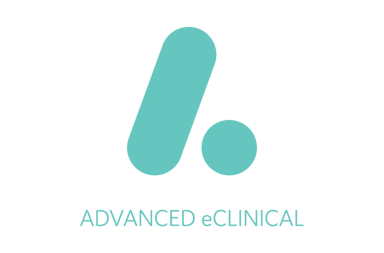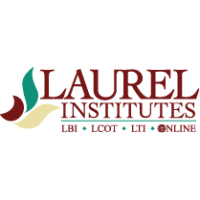How to Become a Healthcare Documentation Specialist in California

Want personalized recommendations?
Let's match you to the right program

A Healthcare Documentation Specialist, also known as a Medical Transcriptionist, is a professional responsible for converting voice-recorded medical reports into written documents. They play a vital role in creating accurate and detailed medical records that are used for patient care, insurance claims, and legal purposes.
Article continues after recommendations
Recommended for you
Responsibilities of a Healthcare Documentation Specialist:
- Transcribing and editing medical reports, including patient histories, physical examinations, consultations, and discharge summaries.
- Ensuring the accuracy of medical terminology, spelling, and grammar in the transcribed documents.
- Maintaining patient confidentiality and adhering to privacy regulations.
- Reviewing and correcting reports for clarity, consistency, and completeness.
- Collaborating with healthcare professionals to clarify any unclear or ambiguous information.
Work Settings for Healthcare Documentation Specialists:
Healthcare Documentation Specialists can work in various healthcare settings, including:
- Hospitals
- Clinics and medical offices
- Rehabilitation centers
- Diagnostic laboratories
- Transcription service companies
- Remote work opportunities
Requirements to become a Healthcare Documentation Specialist in California:
To become a Healthcare Documentation Specialist in California, you need to fulfill the following requirements:
- Education: A high school diploma or equivalent is typically required. However, some employers may prefer candidates with postsecondary training in medical transcription or a related field.
- Legal Requirements: California does not have any specific state licensure or certification requirements for Healthcare Documentation Specialists. However, employers may prefer certified professionals who have completed a recognized certification program.
Finding Healthcare Documentation Specialist Classes in California:
If you're interested in becoming a Healthcare Documentation Specialist in California, Dreambound is the largest platform to find and compare vocational training programs. Dreambound offers comprehensive Healthcare Documentation Specialist classes that can help you develop the necessary skills and knowledge.
You can find Healthcare Documentation Specialist training programs in California through Dreambound at the following locations:
Dreambound makes it easy for students to find classes near them and compare different programs to choose the one that best suits their needs.
Remember, becoming a Healthcare Documentation Specialist requires dedication, attention to detail, and continuous learning. By acquiring the right education and training, you can embark on a rewarding career in healthcare documentation.
How do I get my Healthcare Documentation Specialist certification?
If you're interested in pursuing a career as a Healthcare Documentation Specialist, getting certified is a great way to enhance your credentials and increase your chances of landing a job in the field. Certification demonstrates your expertise and knowledge in the field of healthcare documentation, and can give you a competitive edge in the job market.
There are several organizations that offer certification for Healthcare Documentation Specialists, but one of the most well-known and respected is the Association for Healthcare Documentation Integrity (AHDI). AHDI offers the Certified Healthcare Documentation Specialist (CHDS) certification, which is widely recognized in the industry.
To get your CHDS certification, you'll need to meet certain eligibility requirements and pass an examination. The eligibility requirements include having a high school diploma or equivalent, completion of a medical transcription training program, and a minimum of two years of experience in healthcare documentation.
The examination for the CHDS certification consists of multiple-choice questions that cover a range of topics related to healthcare documentation. The exam is designed to test your knowledge and skills in areas such as medical terminology, anatomy and physiology, grammar and punctuation, and healthcare documentation guidelines and standards.
To prepare for the exam, it's recommended that you review study materials and resources provided by AHDI, such as their study guide and practice exams. You may also consider taking a certification preparation course, which can help you review the material and gain a better understanding of what to expect on the exam.
Once you feel prepared, you can schedule your exam through AHDI's testing partner, Prometric. The exam is administered at Prometric testing centers across the United States, and you'll need to pay an exam fee at the time of scheduling.
After you've successfully passed the exam, you'll receive your CHDS certification from AHDI. This certification is valid for three years, and you'll need to complete continuing education credits to maintain your certification.
Get courses selected just for you
Try our powerful search engine
Article continues after recommendations
How do I get a job as a Healthcare Documentation Specialist?
Once you've obtained your certification as a Healthcare Documentation Specialist, you'll be ready to start looking for job opportunities in the field. There are several ways you can go about finding a job as a Healthcare Documentation Specialist.
One option is to search for job openings on online job boards and career websites. Many healthcare organizations and medical transcription companies post job listings for Healthcare Documentation Specialists on these platforms. You can use keywords such as "healthcare documentation specialist," "medical transcriptionist," or "medical scribe" to narrow down your search and find relevant job listings.
Another option is to reach out to healthcare organizations directly. Hospitals, clinics, and doctors' offices often have their own medical transcription departments or contract with medical transcription companies. You can contact these organizations to inquire about job opportunities or submit your resume for consideration.
Networking can also be a valuable tool in finding a job as a Healthcare Documentation Specialist. Attend industry conferences, join professional organizations, and connect with professionals in the field through social media platforms like LinkedIn. Building relationships and making connections can help you learn about job opportunities that may not be publicly advertised.
When applying for jobs, it's important to tailor your resume and cover letter to highlight your certification and relevant experience. Emphasize your knowledge of medical terminology, attention to detail, and ability to work independently. Be sure to include any relevant work experience or internships you've completed, as well as any additional certifications or training you've received.
During the interview process, be prepared to discuss your certification and demonstrate your knowledge and skills in healthcare documentation. You may be asked to complete a transcription test or provide samples of your work to showcase your abilities.
Career Paths and Opportunities after Becoming a Healthcare Documentation Specialist
Becoming a Healthcare Documentation Specialist can open up a variety of career paths and opportunities in the healthcare industry. Here are a few potential career paths you could pursue after obtaining your certification:
Medical Transcriptionist: As a certified Healthcare Documentation Specialist, you'll be qualified to work as a medical transcriptionist. In this role, you'll transcribe and edit medical reports dictated by healthcare professionals, ensuring accuracy and adherence to documentation guidelines. Medical transcriptionists can work in a variety of settings, including hospitals, clinics, transcription companies, and remote positions.
Medical Scribe: Another career path to consider is becoming a medical scribe. As a medical scribe, you'll work directly with healthcare providers to document patient encounters in real-time. This can include taking notes during medical exams, documenting diagnoses and treatment plans, and managing electronic health records. Medical scribes often work in hospitals and clinics, and their role is critical in ensuring accurate and complete medical documentation.
Medical Editor: If you have a strong attention to detail and excellent grammar and punctuation skills, a career as a medical editor may be a good fit for you. Medical editors review and edit medical documents for accuracy, clarity, and consistency. They ensure that the documentation meets industry standards and guidelines, and may also be responsible for training and mentoring other healthcare documentation specialists.
Medical Coding and Billing Specialist: With additional training and certification, you could also pursue a career in medical coding and billing. Medical coding and billing specialists assign codes to medical procedures and diagnoses, ensuring accurate reimbursement from insurance companies. This role requires a strong understanding of medical terminology and coding systems, as well as knowledge of healthcare regulations and guidelines.
Healthcare Documentation Trainer or Educator: If you enjoy teaching and have a passion for healthcare documentation, you could consider a career as a trainer or educator. In this role, you would develop and deliver training programs for new and existing healthcare documentation specialists. You may work for a medical transcription company, a healthcare organization, or as an independent consultant.
These are just a few examples of the career paths and opportunities available to Healthcare Documentation Specialists. With the right skills and experience, you can explore different areas of healthcare documentation and find a path that aligns with your interests and goals.
Final Thoughts
Becoming a Healthcare Documentation Specialist can be a rewarding career choice for those who have an interest in healthcare and a strong attention to detail. By obtaining your certification and gaining experience in the field, you'll be well-equipped to pursue job opportunities and advance in your career.
Remember to stay informed about industry trends and changes in healthcare documentation guidelines and standards. Continuing education and professional development are important for staying up to date and maintaining your certification.
If you're considering a career as a Healthcare Documentation Specialist, take the time to research certification programs and requirements. Reach out to professionals in the field, attend industry events, and gather as much information as possible before making a decision.
With the right skills, knowledge, and dedication, you can start your journey towards becoming a certified Healthcare Documentation Specialist and embark on a rewarding career in the healthcare industry.
Dreambound has written many guides to help you understand what it takes to get this certification. If you're curious about the process or requirements in other states, check out our other guides below:
- Healthcare Documentation Specialist classes near me in Chicago
- Healthcare Documentation Specialist classes near me in Indianapolis
- Healthcare Documentation Specialist classes near me in Louisville/Jefferson County
- Healthcare Documentation Specialist classes near me in Oklahoma City
- Healthcare Documentation Specialist classes near me in Tulsa
Contemplating a change in your career path? Dreambound has written many comprehensive guides to aid you in making well-informed decisions.

Justine Tacmo is part of the Growth team at Dreambound. He assists the organization by updating critical information so students receive the most up-to-date information for their desired trade schools. Besides, he has a passion for writing and expresses it through poetry, covering themes of life, love, and mental health, which is also his advocacy.



